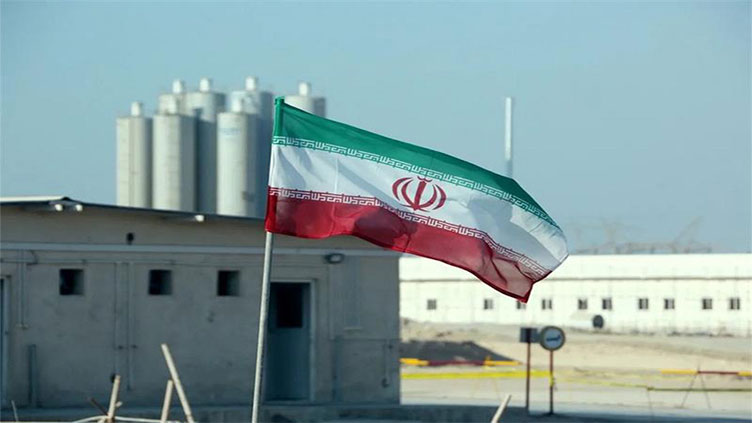UN watchdog questions peaceful nature of Iran nuclear programme

World
UN's nuclear watchdog said it could not guarantee the peaceful nature of Iran's nuclear programme.
VIENNA (AFP) - The UN s nuclear watchdog said Wednesday it could not guarantee the peaceful nature of Iran s nuclear programme, saying there had been "no progress" in resolving questions over the past presence of nuclear material at undeclared sites.
In a report seen by AFP, the International Atomic Energy Agency (IAEA) said it was "not in a position to provide assurance that Iran s nuclear programme is exclusively peaceful".
It said IAEA Director General Rafael Grossi was "increasingly concerned that Iran has not engaged with the Agency on the outstanding safeguards issues during this reporting period and, therefore, that there has been no progress towards resolving them".
The IAEA has been pressing Iran for answers on the presence of nuclear material at three undeclared sites and the issue led to a resolution criticising Iran being passed at the June meeting of the IAEA s board of governors.
Tehran, which maintains that its nuclear programme is exclusively peaceful, this week again insisted that the IAEA probe would have to be concluded in order to revive the 2015 deal on its nuclear programme with world powers.
In the report, Grossi called "upon Iran to fulfil all of its legal obligations" in clearing up the outstanding questions about the three sites.
In another report also issued on Wednesday, the IAEA addressed Iran s decision in June to disconnect 27 cameras allowing the agency s inspectors to monitor its nuclear activities.
The removal of the cameras has had "detrimental implications for the agency s ability to provide assurance of the peaceful nature of Iran s nuclear programme," the report said.
- Stalled talks -
The latest reports come as talks to revive the 2015 nuclear deal, which appeared to make some progress last month, remain stalled.
The accord began unravelling when former US president Donald Trump withdrew from it in 2018 and went on to reimpose crippling economic sanctions on Iran.
In return, Tehran began abandoning the deal s limits on its nuclear programme, including on its enriched uranium stockpile.
The IAEA says the stockpile is now an estimated 3,940 kilograms, over 19 times the limit set out in the accord.
In addition, Iran has continued enriching uranium to levels above the 3.67-percent limit in the deal.
It now has 331.9 kilos enriched up to 20 percent, up from 238.4 kilos in May.
At this level uranium can be used to produce isotopes for medical uses, for example in diagnosing certain cancers.
The stockpile of uranium enriched to 60 percent is now 55.6 kilos, up from 43.1 kilos. That level of enrichment is much closer to the 90-percent threshold required for use in a weapon.
A Vienna-based diplomat said that given Iran s advances in enrichment it would now probably need "three to four weeks to reach the significant amount" needed for a nuclear weapon.
However, experts caution that Iran would also need to take many other steps besides enriching uranium, to build even a test weapon and that it is not clear that Iran had made much progress in these other areas.
In the event that the 2015 deal is revived and Iran resumes full co-operation with IAEA inspections, the agency warns it "would need to apply additional safeguards measures and Iran would need to provide comprehensive and accurate records to the agency" in order to remedy the gaps in its knowledge.

